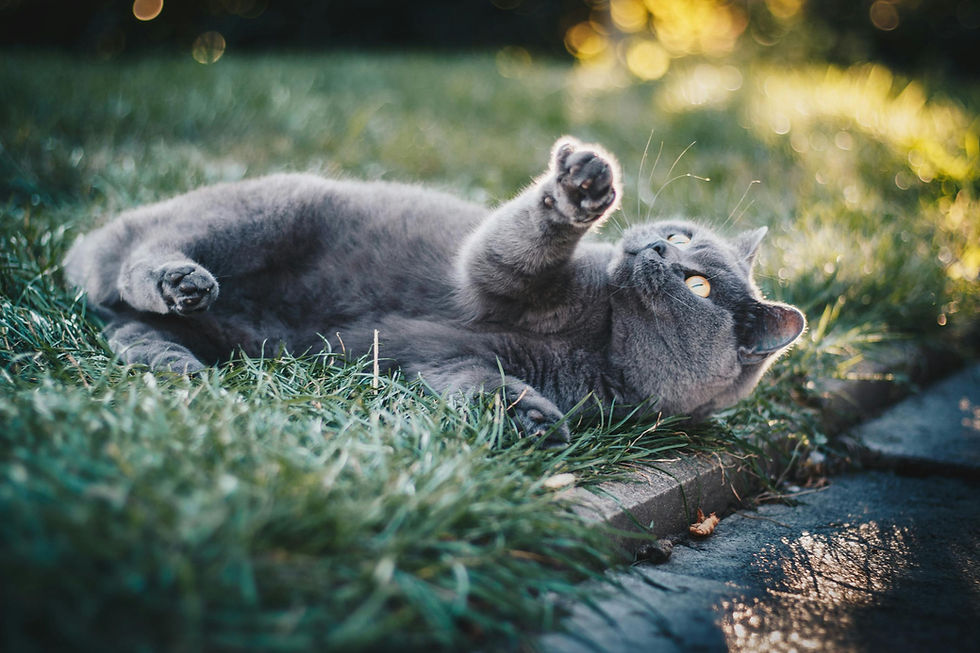Why is My Cat Coughing?
- Snappy Tom Pet Supply
- Feb 13, 2023
- 2 min read

Cats are typically stoic when feeling under the weather, but a cough is a symptom they may not be able to mask. There are several potential causes of coughing in cats, many of them minor. However, veterinary intervention may be necessary if you notice your cat suffering from a persistent cough.
Here are some common causes of cat coughing, accompanying symptoms to be aware of, and some suggested steps for diagnosis and treatment.
Common Causes of Cat Coughing
Here are some of the most common reasons your cat may be coughing.
Hairballs
Cats are fastidious groomers; as a result, they may swallow large amounts of hair. Unfortunately, the hair is indigestible. Sometimes it will pass through your cat's digestive system, but sometimes it will accumulate in the stomach and form a hairball. If the hairball can't pass through the digestive tract, your cat will regurgitate it, resulting in coughing.
Respiratory infections
Respiratory infections, such as feline herpesvirus (FVR) or feline calicivirus, can cause cats to cough, sneeze, and have runny noses. Kennel cough (clinically referred to as bordetella bronchiseptica) is a common respiratory infection for cats that have been living in close quarters with other animals (such as a shelter or kennel).
Allergies and parasites
Allergies and parasites can also cause irritation and coughing in cats. Coughing is a common sign of parasitic worms in cats. Your cat may also cough if they have inhaled a bothersome (or toxic) liquid or spray. For instance, your cat may be sensitive to cleaning products you use around your home. Open windows and put your cat in a separate area of the house when using cleaning sprays that may cause respiratory irritation.
Heart disease
Cats with heart disease often experience fluid accumulation in their lungs, leading to coughing and shortness of breath. Annual vet visits are an excellent way to spot the signs of heart disease before they become severe.
Signs and Symptoms to Watch For
If your cat is coughing persistently, it is essential to observe other signs and symptoms that may be present. Sneezing and runny nose, loss of appetite, rapid breathing, and fatigue are some symptoms that can accompany a cough in cats.
If your cat is coughing up phlegm or blood, that's a sure sign of an infection or a more serious underlying condition that requires veterinary attention.
Diagnosis and Treatment
Contact your veterinarian if you suspect your cat is coughing due to an underlying health issue. A physical examination, lab tests, and x-rays may be necessary to determine the cause of the cough. Based on the results, your veterinarian may prescribe medications (such as antibiotics) or other treatments to help alleviate your cat's symptoms.
Prevention of Cat Coughing
Regular grooming to remove hairballs, keeping the cat's environment clean and free of allergens, and regular vet check-ups can help prevent cat coughing. Keeping your cat's vaccinations up to date will help protect them against respiratory infections.
The Bottom Line
The occasional cough from your cat usually isn't anything to be concerned about, but a persistent or worsening cough could indicate an underlying condition such as a respiratory illness or allergies. If your cat's cough worsens or is accompanied by other symptoms such as loss of appetite, difficulty breathing, or lethargy, contact your veterinarian for guidance.







Comments